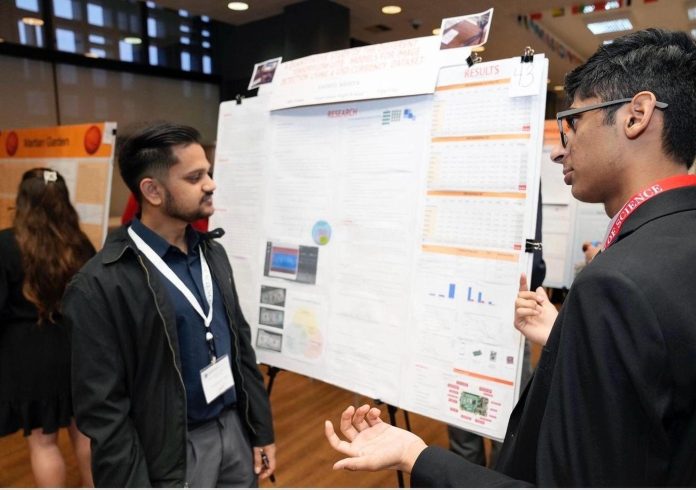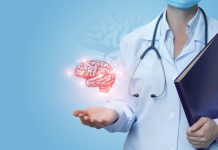In an era where artificial intelligence (AI) is reshaping industries worldwide, one of its most promising applications lies in healthcare. AI-driven solutions are poised to revolutionize diagnostics, predictive analytics, and patient care, making healthcare more efficient, accessible, and precise. At the forefront of this transformation is Gaurav Kumar Gupta, a leading AI and machine learning expert whose groundbreaking research and technological innovations drive significant advancements in healthcare diagnostics.
The Need for AI in Healthcare
Healthcare systems globally face immense challenges, including rising costs, physician shortages, and the increasing burden of chronic diseases. Traditional diagnostic processes rely on subjective assessments, leading to potential misdiagnosis and delayed treatments. AI, particularly large language models (LLMs) and machine learning algorithms, offers a transformative approach to addressing these issues.
Gupta’s research focuses on leveraging AI to enhance diagnostic accuracy and efficiency. His recent work on AI-driven digital diagnostics explores the capability of advanced LLMs, such as GPT-4 and Gemini, to analyze symptom-based prompts and deliver reliable preliminary diagnoses. By processing vast amounts of medical literature, patient records, and clinical guidelines, AI models can assist physicians in identifying diseases with high precision, reducing the likelihood of diagnostic errors.
Enhancing Early Detection of Chronic Diseases
One of the most promising aspects of AI in healthcare is its ability to detect chronic diseases early. Conditions like diabetes, cardiovascular diseases, and cancer require timely diagnosis for effective treatment. Gupta’s work integrates predictive analytics with AI to detect subtle patterns in patient data, allowing for early intervention and improved patient outcomes.
For example, AI models trained on extensive datasets from electronic health records (EHRs), medical imaging, and genetic profiles can identify at-risk patients before symptoms manifest. This proactive approach enables doctors to implement preventive measures, thus reducing hospital admissions and enhancing overall public health.
AI-Driven Personalized Treatment Plans
Beyond diagnostics, AI can tailor treatment plans to individual patients by analyzing their medical history, genetic markers, and response to previous treatments. Machine learning algorithms can suggest personalized treatment regimens, improving drug efficacy and minimizing adverse reactions. Gupta’s research delves into optimizing AI frameworks for precision medicine, ensuring that treatments are customized for each patient’s unique physiological and genetic makeup.
Bridging the Healthcare Accessibility Gap
AI-powered diagnostic tools also hold immense potential in expanding healthcare access, particularly in underserved and remote areas. Rural communities often lack specialized medical professionals, making timely diagnosis and treatment challenging. AI-based telemedicine platforms, equipped with Gupta’s AI-driven healthcare innovations, can bridge this gap by enabling remote consultations and automated diagnostic support.
By integrating AI into mobile health applications, individuals can input symptoms and receive preliminary assessments, empowering them to seek medical attention promptly. This technological leap democratizes healthcare, ensuring quality medical assistance is available beyond traditional hospital settings.
Challenges and Ethical Considerations
Despite AI’s enormous potential, challenges remain in its adoption within healthcare. Data privacy concerns, regulatory compliance, and the ethical implications of AI-driven decision-making must be carefully addressed. Gupta emphasizes integrating robust safeguards, including HIPAA-compliant AI models and transparent algorithmic processes, to protect patient confidentiality and ensure fairness in healthcare AI applications.
Furthermore, AI should not replace human medical expertise but rather complement it. Physicians remain the cornerstone of healthcare, with AI as an augmentative tool that enhances their decision-making capabilities rather than supplanting them.
The Future of AI in Healthcare
With continued advancements in AI and machine learning, the future of healthcare looks promising. Gupta’s research and technological innovations pave the way for a more innovative, efficient, and patient-centric healthcare ecosystem. As AI systems become more sophisticated, their role in diagnostics, personalized medicine, and healthcare accessibility will only expand, ultimately saving lives and improving the quality of care worldwide.
Integrating AI into healthcare is not a question of if but when. With visionary researchers like Gaurav Kumar Gupta leading the charge, the AI-driven healthcare revolution is already underway, promising a future where medicine is more advanced, inclusive, and efficient. View more at Google Scholar.
The photo in the article is provided by the company(s) mentioned in the article and used with permission.
Disclaimer: This article contains sponsored marketing content. It is intended for promotional purposes and should not be considered as an endorsement or recommendation by our website. Readers are encouraged to conduct their own research and exercise their own judgment before making any decisions based on the information provided in this article.





































